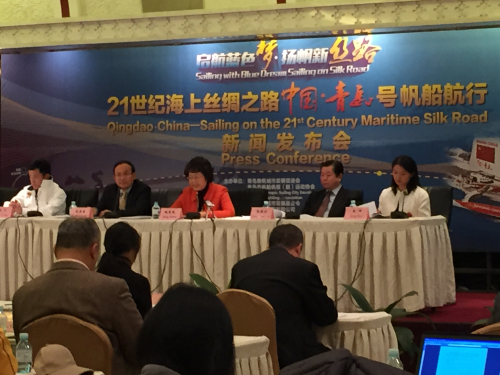 |
|
NEW SILK ROAD: A team of sailors will set off from Qingdao, a coastal city in east China's Shandong Province, to explore a possible route of the 21st Century Maritime Silk Road between March to June next year, as announced at a press conference on December 15 (YUAN YUAN) |
Earthquake Network
China Earthquake Networks Center (CENC) will provide an earthquake notification service to the public through its microblogging account, the center said on December 17.
CENC joined forces with Weibo.com and promised that earthquake information would be pushed to all terminal users in the epicenter regions within 10 seconds of the earthquake.
Earthquake alerts will also be available through the center's official Weibo platform, according to Pan Huaiwen, Director of CENC.
"The move is to ensure fast and accurate earthquake information access for the people, and to help mitigate panic after the earthquake," Pan said.
More Media Exposure
China's State Council Information Office (SCIO) plans to hold regular media briefings on key policies to address public concern, a senior official said on December 16.
From January, the SCIO will hold weekly briefings on important decisions by the Communist Party of China Central Committee and the State Council as well as economic and social policies, said Cai Mingzhao, Minister of the SCIO.
Cai urged the voices of the Party and government departments to be more helpful to the media in terms of information and interviews.
The SCIO has held a total of 87 news conferences and briefings this year, the most in its history.
Literature Database
A database of Chinese poems and classics of literature will soon be open to viewers both home and abroad.
The database, still in its first phase, is made up of about 500 hours of video on the 100 most popular classic of Chinese poetry and short essays, according to a press release from the People's Education Press, the database's publisher, on December 17.
The videos show readings and elaborations on the classics, including some from ethnic minorities like Mongolians, Tibetans, Uygur and Koreans. These works are presented in both their original languages and in Mandarin.
The public will be able to access the database through www.pep.com.cn, www.china-language.gov.cn and www.zhonghuayuwen.org.
